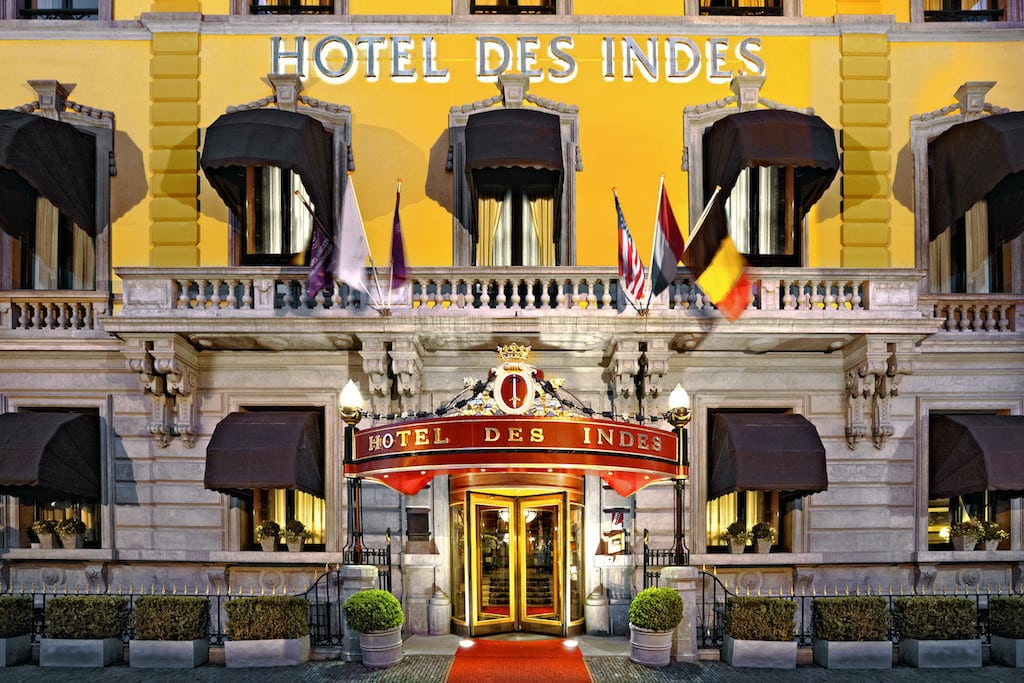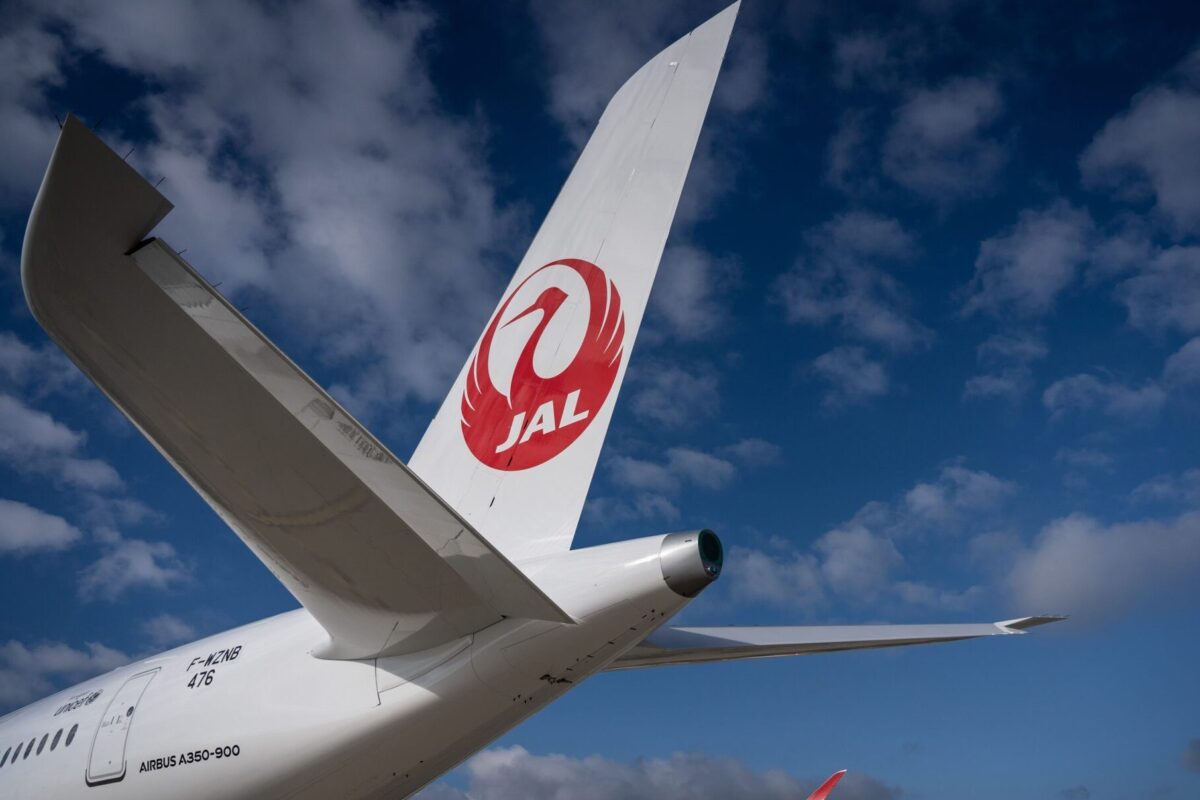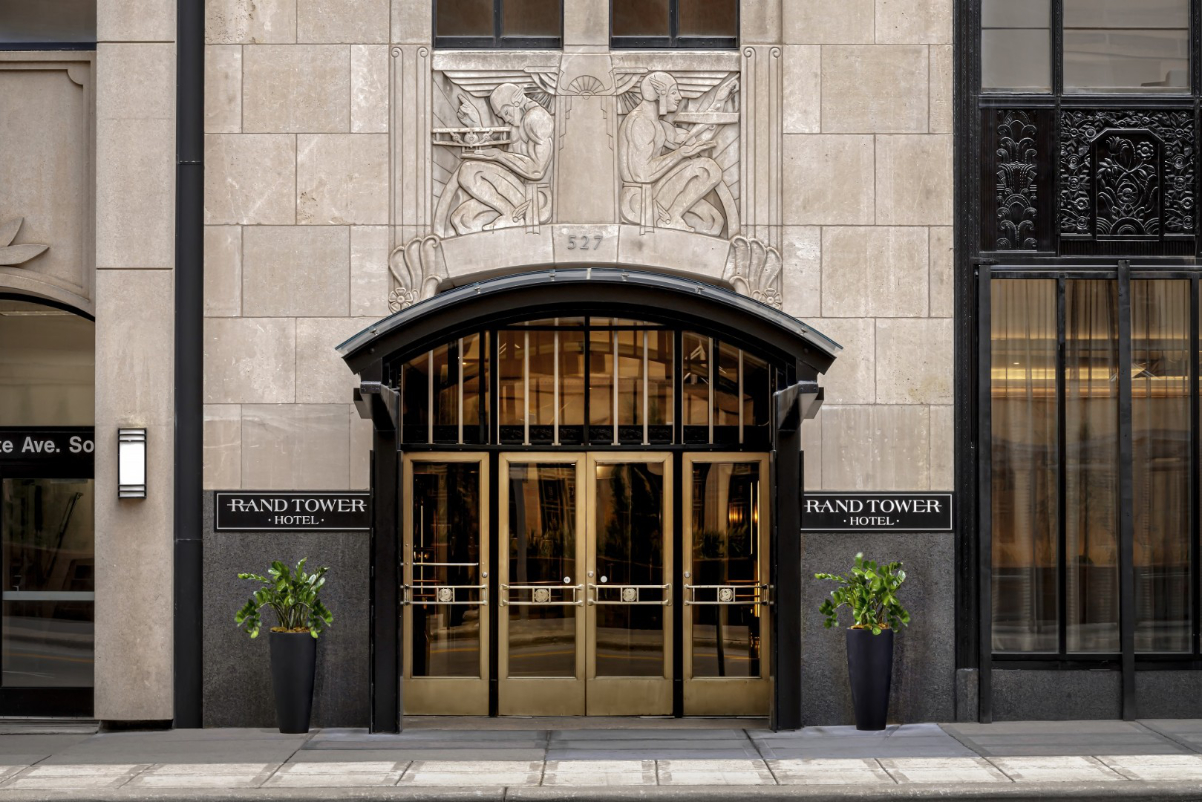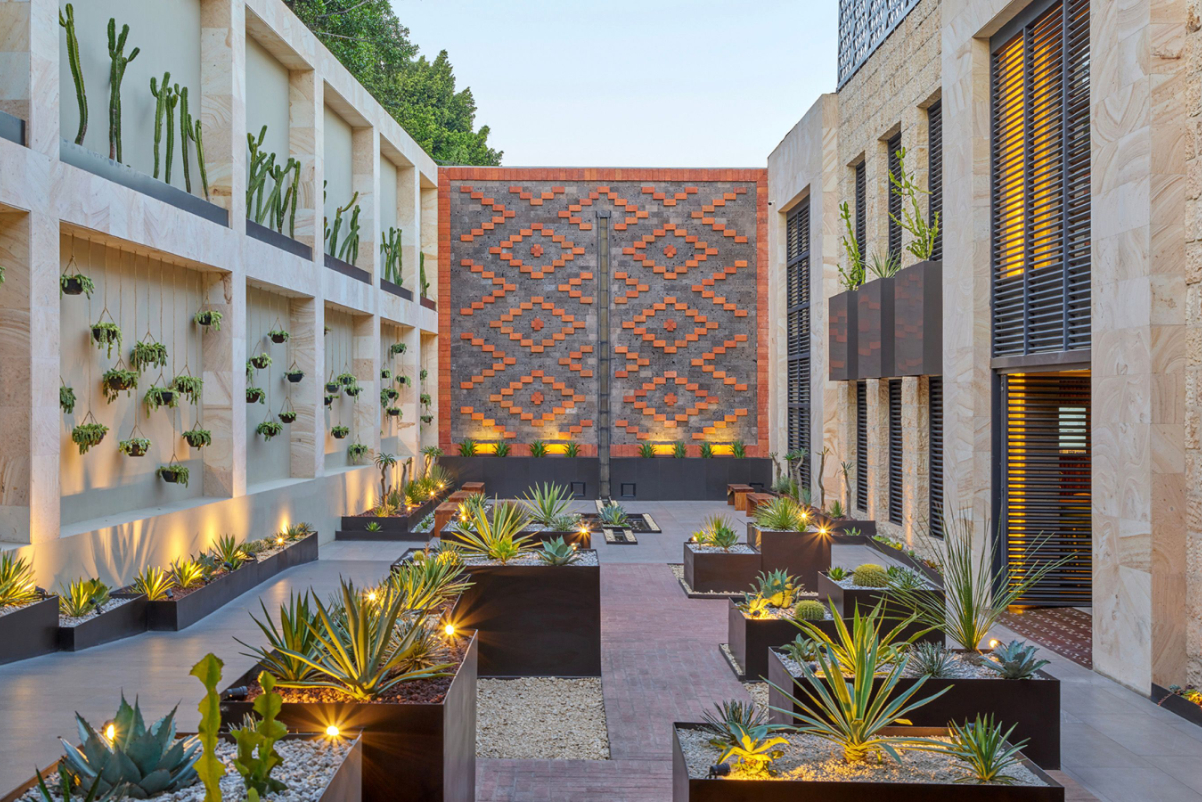The Inside Story of Anbang’s Final, Failed Attempt to Acquire Starwood

Skift Take
On March 31, the final chapter of a nearly month-long saga seemed to have been written. China’s Anbang Insurance Group, who had for so long desired Starwood Hotels & Resorts, abruptly withdrew itself from contention in its long pursuit of the American hotel company.
Citing “various market considerations,” Anbang and its consortium partners, J.C. Flowers & Co. and Primavera Capital Ltd., departed as quickly as they had entered into the fray of a bidding war for Starwood on March 10.
Thanks to U.S. Securities and Exchange Commission filings made public on Dec. 22 and March 25, we know that Anbang had its eye on Starwood as far back as May of last year, and that it made several attempts to buy the company since then, with offers ranging from nearly $15 billion to $13 billion, all in cash, over the course of this past year.
The problem with most of those offers, however, was that Anbang had failed to provide enough financing details for the majority of them. That, however, was not the case when Anbang and its investor group wooed Starwood with an all-cash $13.2 billion proposal, valued at $78 per share. That deal was fully financed, binding, and accepted by Starwood’s board on March 18.
Three days later, on March 21, Marriott countered back with a new proposal originally valued at $13.8 billion, and Starwood agreed to it. This new offer from Marriott would offer Starwood shareholders 0.8 shares of Marriott common stock and $21 per share of Starwood stock — and it represented a 15.4 percent premium over Marriott’s original offer from November.
Even so, most analysts felt that while Marriott’s offer was a solid one, Anbang and its consortium had the upper hand — and the cold hard cash — necessary to ultimately win Starwood over. As predicted, the Anbang consortium did, in fact, make another offer to Starwood on the afternoon of March 26. This time around, the offer that was never finalized topped out at $82.75 per share, or approximately $13.8 billion in cash. By all accounts, it seemed like Anbang had put in the final death knell on Marriott’s dreams of becoming the world’s largest hotel company.
But that was not to be the case, as a new SEC filing from Starwood demonstrates. Here’s a closer look at what happened between March 26 and April 1:
The Timeline
In the afternoon on March 26, a representative from the consortium’s law firm sent an unsolicited, non-binding bid valued at $81 per share in cash to Starwood’s legal team as well as its chairman of the Board Bruce Duncan, CEO Thomas B. Mangas, and General Counsel Kenneth Siegel.
Later that afternoon, the Starwood board and its legal team met with Siegel and CFO Alan M. Schnaid to discuss the new proposal, and they ultimately decided that this new offer would reasonably likely lead to a “superior proposal” as defined in their merger agreement with Marriott. That determination formally allowed Starwood to reach out to Anbang to discuss the new offer, and they began talking with the consortium that day.
The next day, March 27, Anbang’s legal team sent Starwood’s legal team a draft of their new merger agreement, which included covering the total cost of Starwood’s $450 million breakup fee to Marriott, as well as any other fees Starwood would owe to Marriott for terminating their new deal and choosing to be acquired by Anbang. In its previous agreement with Starwood, Anbang had offered to cover half of the breakup fee, a total of $200 million. This time, it was willing to cover all of it.
Discussions between both group’s legal teams continued and in the afternoon on March 27, the Starwood strategy committee met with Starwood’s management team, including the CEO, CFO, and general counsel.
Shortly after that, the committee met with Anbang Chairman Wu Xiaohui and it was during that meeting he upped his initial offer from $81 a share to $82 a share. Following that meeting, the Starwood board met with its legal team, CFO and general counsel to discuss the proposal further.
On the morning of March 28, Starwood received a new even higher bid from the consortium for $82.75 per share, as well as a draft escrow agreement that would place into escrow the aggregate increase in merger consideration from the consortium’s originally binding proposal from March 18.
Just before the markets opened on March 28, Starwood issued a press release about the new unsolicited proposal from Anbang, stating it was reasonably likely to lead to a superior proposal and that both groups were continuing to discuss the non-price terms of the new proposal, as well as finalizing definitive documentation required to make it fully binding and fully financed. Starwood was careful to note, however, that its board had not yet changed its recommendation in favor of approving the new deal with Marriott.
At 10 a.m. on March 28, Starwood’s special shareholder meeting was convened and promptly adjourned to April 8, as was Marriott’s special stockholder meeting. Prior to Anbang’s intervention, March 28 was supposed to be the day when both Marriott and Starwood’s shareholders would have approved their November merger agreement.
That same day, Richard S. Hoffman, Marriott’s EVP of mergers, acquisitions, development planning, and business development, sent the Starwood CEO a letter outlining why a deal with Marriott would be superior to the consortium’s non-binding proposal.
Conversations about Anbang’s new proposal continued among Starwood’s board, management and legal teams that day, and by the evening of March 28 drafts of proposed definitive documentation — including a draft merger agreement and escrow agreement — were in “substantially final form.” At this point, Starwood expected to receive a binding proposal from Anbang any minute but what they got, instead, was a call from the consortium’s legal team saying that the group was “still working on matters related to the proposal.”
The next day, on March 29, Anbang’s Wu called Mangas saying that the consortium was considering raising its bid even further and that it needed “a couple of days” to finalize its proposal.
Then, in the afternoon of March 31, Starwood’s legal team heard from the consortium’s legal team. The news wasn’t what Starwood was hoping for: Anbang’s consortium was withdrawing its non-binding proposal, and would not make another attempt to buy Starwood. Shortly thereafter, Starwood’s CEO, Chairman of the Board, and General Counsel received a letter from Anbang’s legal advisors saying the consortium decided not to proceed further in a potential acquisition because of various market considerations.
Later that evening, both the consortium and Starwood issued statements about Anbang’s decision to walk away from acquiring Starwood. Soon after, a seemingly victorious Marriott and a presumably shocked Starwood jointly announced they would host a joint investors call the next morning on April 1 in an effort to persuade their prospective shareholders to approve a combined company.
So Close, and Yet So Far Away
As these newest details show, Anbang was very, very close to clinching Starwood and it appears that Starwood was expecting to eventually approve a new, even higher bid from Anbang that would also have covered any breakup costs associated with terminating their agreement with Marriott. Anbang was thisclose to buying Starwood.
So why did Anbang and its consortium walk away? We may never know exactly why but it’s clear, following the April 1 investor’s presentation by Marriott and Starwood, that Anbang and its investor group did, in fact, have the money to back up their very generous offer to buy Starwood. The only problem was that this time, Anbang wasn’t willing to provide the details needed to make that offer binding and fully financed. Maybe it had something to do with Chinese insurance regulators, or perhaps Anbang simply got a case of cold feet, even though the object of its desire was so very close within its reach. At this point, we just don’t know — and we’ll never know how Starwood would have fared if it had been bought by Anbang.
But if there’s anything this tale has shown us, it’s this: We probably haven’t seen the last of Anbang. If its pursuit of Starwood has shown us anything, it’s that Anbang is very serious about becoming a major player in the U.S. hotel industry. It already owns the Waldorf-Astoria in New York, and it’s in the process up snapping up 16 luxury properties from Blackstone in a deal valued at $6.5 billion. We may never know why it suddenly backed out of a deal with Starwood, but it’s clear the company is not afraid to spend the big bucks to get what it wants.
During their joint investors presentation on April 1, Starwood CEO Mangas called Anbang “formidable” and Marriott CEO Arne Sorenson was quoted as saying, “I hope I’ll have the chance to meet the chairman of Anbang one day. You have to take someone who shows up with that $13-billion-plus deal with respect. They’ve obviously got resources. We’ll see how they choose to put those resources to work.”
We will, indeed.
Chronology of Marriott-Starwood-Anbang:
- Monday, March 14: Starwood Gets Takeover Bid by Consortium Led by Chinese Firm Anbang
- Monday, March 14: New Starwood Takeover Bid: The Players Behind the $13 Billion Offer
- Tuesday, March 15: Starwood Rival Takeover Bid: What It Means for Brands, Executives and Shareholders
- Friday, March 18: Starwood Accepts Anbang’s Takeover Bid, Marriott Plans a Counter-Offer
- Friday, March 18: Will Marriott Be Able to Top Anbang’s Offer for Starwood?
- Monday, March 21: Starwood Accepts Marriott’s Counter-Offer Worth $13.6 Billion
- Monday, March 21: Marriott Investor Call: This Is What We Have In Store for Starwood
- Wednesday, March 23: This Is How Marriott Could Lose Starwood to Anbang’s Investor Group
- Friday, March 25: What Marriott Is Telling Its Shareholders About Starwood the Second Time Around
- Friday, March 25: The Inside Story of Anbang’s Long Pursuit to Acquire Starwood
- Monday, March 28: Starwood Executives’ Golden Parachutes Got More Golden With New Marriott Offer
- Monday, March 28: Starwood Takeover: Anbang Raises Offer to Upset Marriott Bid
- Monday, March 28: What Starwood’s CEO Is Telling Employees About the Sale Process
- Tuesday, March 29: This Is What Marriott Has to Do to Keep Starwood from Anbang
- Thursday, March 31: Starwood Hotels Bidder Anbang Walks Away, Leaves Door Open for Marriott
- Friday, April 1: What Starwood’s CEO Is Telling Employees About Anbang Walking Away
- Friday, April 1: Marriott CEO: Most Important Thing for Us Is the Loyalty Program
- Friday, April 1: Marriott-Starwood Investor Call: Anbang’s Deal Was ‘Very Real’




